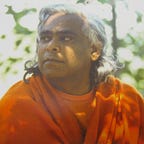The Five Principles of Sivananda Yoga
Born in Kerala, India, in 1927, Swami Vishnudevananda attended the Sivananda Ashram in Rishikesḥ, India, and later became the first professor of haṭha yoga at the Sivananda Yoga Vedanta Forest Academy. Sent West by his Master, Swami Sivananda Saraswati, in 1957 to teach yoga and spread the principles of Vedanta philosophy, Swami Vishnudevananda established a network of International Sivananda Yoga Vedanta Centres.
According to the Sivananda Yoga Vedanta Centres, a true yogic lifestyle consists of five key principles:
1. Proper exercise. Performing physical postures (asana) is essential for the movement of energy through the body, and it also aids in digestion, improves circulation, and relieves stress.
2. Proper breathing. Breath work (pranayama) can both stimulate and calm the nervous system, giving practitioners greater control over their minds during times of stress.
3. Proper relaxation. Helps keep the body from going into overload mode, easing worry and fatigue. This includes deep relaxation techniques, consciously relaxing the muscles, and adopting a lifestyle that allows room for balance.
4. Proper diet. Practitioners should eat whole, unprocessed foods, ideally as part of a sattvic vegetarian diet, which focuses on seasonal foods that are aligned with one’s personal constitution.
5. Meditation and positive thinking. Remaining open and curious is an essential aspect of a yogic lifestyle. Yogis learns to manage their minds and emotions in order to keep them positive at all times.
